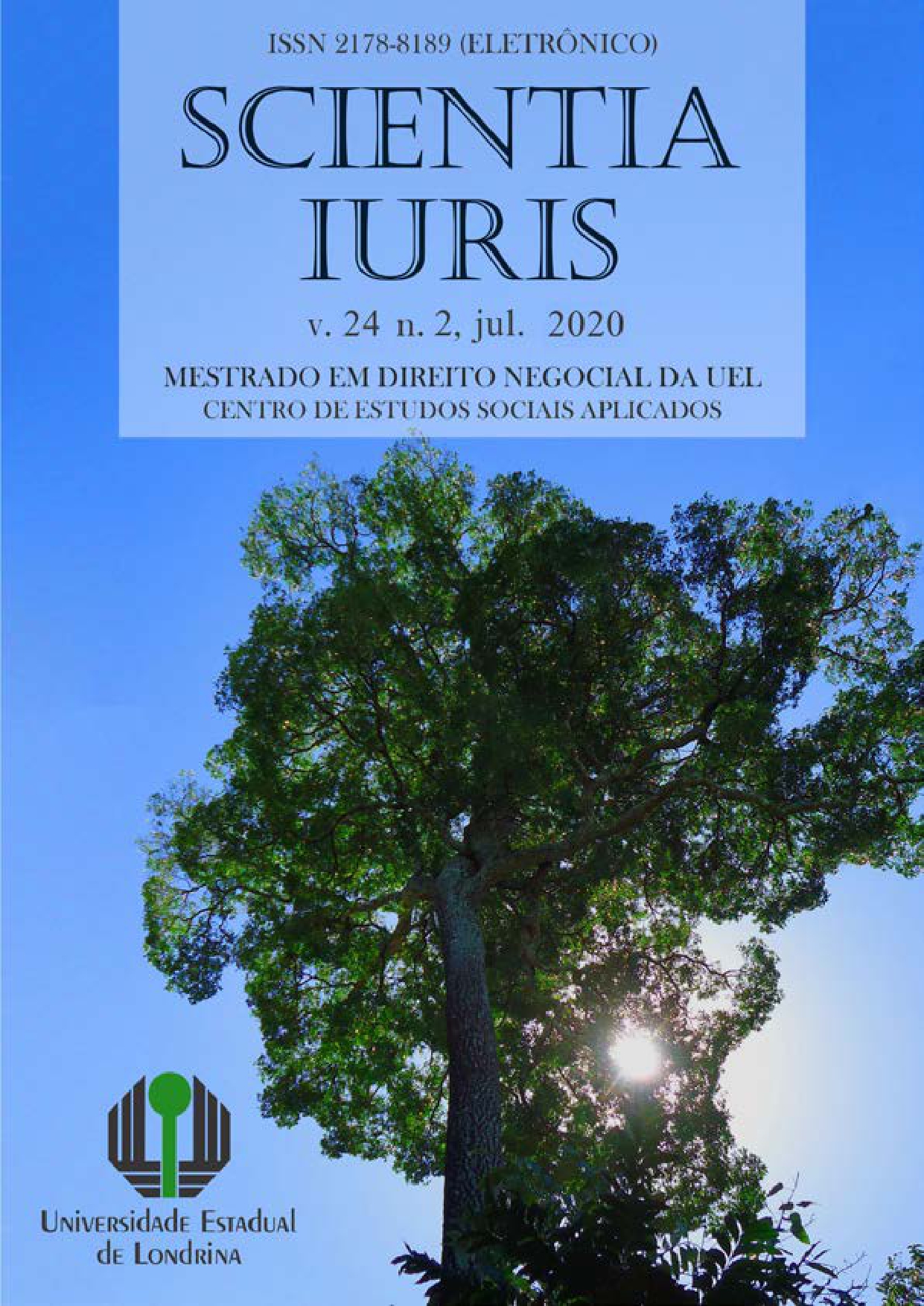Chocolate with pepper: the clash of principles in the Nestlé-Garoto case
DOI:
https://doi.org/10.5433/2178-8189.2020v24n2p47Keywords:
Nestlé, Garoto, Acquisition, CADE, Principles.Abstract
The acquisitions of Nestlé Brasil Ltda. and Chocolates Garoto S.A, both company enterprises, spanned 18 years in the judicial and administrative fields. This case is particularly interesting because it commenced when the revoked competition law was still valid and its legal procedure duration lasts until present day, in the validity of the new competition law. Since 2002, after the application for the acquisition was submitted to CADE, there have been a series of stalemates that restricted it, as the chocolate market, at the time, was not yet well segmented. In this scenario, most of the opinions were unfavorable to the transaction, giving rise to CADE's first unfavorable decision. Currently, there is a pending judgement by the TRF of the 1st Region. The decision, which will be final, must consider the values of company preservation, free initiative, consumer protection and competition defense. The objective of this paper is to evaluate, from a principiological point of view, the most adequate solution for the acquisition process. In methodological terms, this study chose to analyze a case study and utilize bibliographic and documentary sources with the qualitive method. In conclusion, the most adequate solution is to approve the operation with restrictions, to be pointed out by the companies themselves and evaluated, sequentially, by CADE.Downloads
Download data is not yet available.
Downloads
Published
2020-07-31
How to Cite
Leitão, R. G., Caminha, U., & Pires, A. B. M. (2020). Chocolate with pepper: the clash of principles in the Nestlé-Garoto case. Scientia Iuris, 24(2), 47–63. https://doi.org/10.5433/2178-8189.2020v24n2p47
Issue
Section
Artigos
License
Copyright (c) 2022 Scientia Iuris

This work is licensed under a Creative Commons Attribution 4.0 International License.
The journal reserves the right to modify, in the original text of the submitted article, normative, spelling and grammatical mistakes in order to maintain the cultured standard of language and the credibility of the journal. The journal will respect the authors' writing style. Changes, corrections or suggestions of conceptual order will be sent to the authors, when necessary. In such cases, the articles will be re-examined. The final exams will not be sent to the authors. The published works become the property of the journal, in other words, its total or partial reprinting is subject to the express authorization of the journal. In all subsequent citations, the original source of publication shall be cited and in the case of Photographic Speeches, shall be approved by the original author. The opinions expressed by the authors of the journal's articles are of their sole responsibility.

















